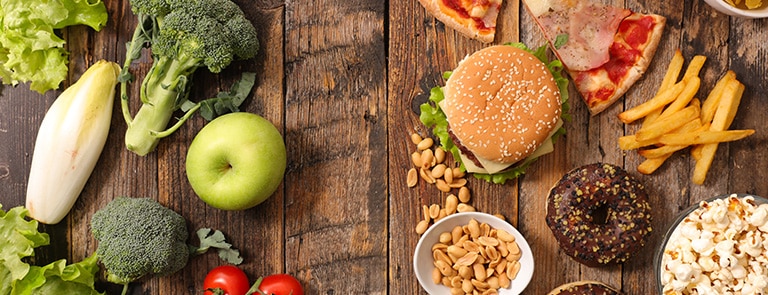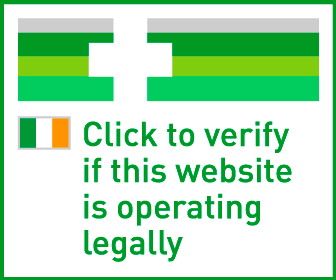15% off €35
Code:HB15
15% off €35
Code:HB15
What causes high cholesterol?

Understanding your blood cholesterol is a great step towards managing your wellness. So, here we delve into what causes high cholesterol and explain some common terminology you may see on the readings from a cholesterol test.
Cholesterol is a common indicator of wellness and a term most of us are familiar with. But do you actually understand what is cholesterol? What about LDL and HDL – do you know the difference between good cholesterol and bad cholesterol? And how can you spot if your LDL cholesterol levels are creeping up too high?
What is cholesterol?
Cholesterol is a fatty substance found in your blood. Your liver naturally produces it, but it can also be consumed in foods such as red meat, high-fat cheese, butter and eggs. Some cholesterol is healthy. In fact, it’s used all around your body to perform some vital bodily functions.1What is cholesterol used for?
- It helps create a healthy outer wall for cells around your body.
- By contributing to the production of bile acids, it supports digestion and the absorption of fats.
- It helps with the creation of hormones and vitamin D. So, it has an important role in keeping your bones, teeth and muscles healthy.
Good cholesterol v bad cholesterol
As a fat (or lipid), cholesterol can't travel in your bloodstream on its own. Before being released into your bloodstream, the lipids attach to protein. Lipids plus proteins, combine to create ‘lipoproteins’, which are spherical parcels that carry cholesterol in your bloodstream to wherever in your body they’re needed.2 Your body creates many variations of lipoprotein, but there are two main types – HDL and LDL. But which one is good cholesterol?- Low density lipoprotein (non-HDL or LDL cholesterol)
- High density lipoprotein (or HDL cholesterol)
What causes high cholesterol?
Anyone can get high cholesterol. Even if you’re fit, healthy and slim. However, here are ten risk factors that can make you more susceptible to raised levels of blood cholesterol.4- Diet. Eating too much saturated fat or a high cholesterol diet.
- Alcohol. Drinking more than the recommended amount of alcohol.
- Smoking
- Being inactive
- Existing health conditions. For example, an underactive thyroid gland, type 2 diabetes, liver disease or kidney disease.
- Being overweight
- Genes. Susceptibility can be inherited from your parents.
- Age. Raised cholesterol levels are more common as you get older.
- Gender. Men are more likely to have high cholesterol levels.
- Ethnicity. People from a South Asian background can have a high risk of high cholesterol
There are often no signs of high cholesterol
Public Health England estimate that six out of ten adults in England have high cholesterol.5 But although it’s common, finding out you have high cholesterol often comes as a surprise. There aren’t any physical high cholesterol symptoms or obvious warning signs that your LDL levels are creeping up too high. The only way to find out if you have healthy cholesterol levels is to have a cholesterol test at your doctors (a simple blood test) or to buy a cholesterol test kit.But what do cholesterol readings mean?
| Type of cholesterol | Normal cholesterol levels |
| Total cholesterol. The combined amount of good and bad cholesterol in your blood. | 5 or lower |
| HDL. The amount of good cholesterol in your blood. | 1 or lower |
| LDL. A measure of the bad cholesterol in your blood. | 3 or lower |
| Triglycerides. Another type of fat found in your blood that’s similar to bad cholesterol and can also contribute to the narrowing of arteries. | 2.3 or lower |
| Note: This is general NHS guidance on cholesterol readings.6 | |
Are there natural ways to lower cholesterol?
Healthy levels of blood cholesterol are specific to each person. And what causes high cholesterol also varies between individuals. So, your doctor will interpret your cholesterol chart in the context of your personal circumstances and risk factors. For some people medication (e.g. statins) provides the best answer to how to lower your cholesterol. But by making positive, natural diet and lifestyle changes, many people are able to lower cholesterol naturally. Last updated: 21 July 2020 Sources 1 https://patient.info/heart-health/high-cholesterol 2 https://www.heartuk.org.uk/cholesterol/what-is-cholesterol 3 Understanding cholesterol brochure by the British Heart Foundation 4 https://www.heartuk.org.uk/cholesterol/what-is-high-cholesterol 5 https://publichealthmatters.blog.gov.uk/2015/10/12/high-cholesterol-beating-the-build-up-during-cholesterol-month/ 6 https://www.nhs.uk/conditions/high-cholesterol/cholesterol-levels/Related Articles
Sign up for exclusive offers
Plus, get expert advice to support your health & wellness straight to your inbox when you sign up to Holland & Barrett emails.
Read our
privacy policy




